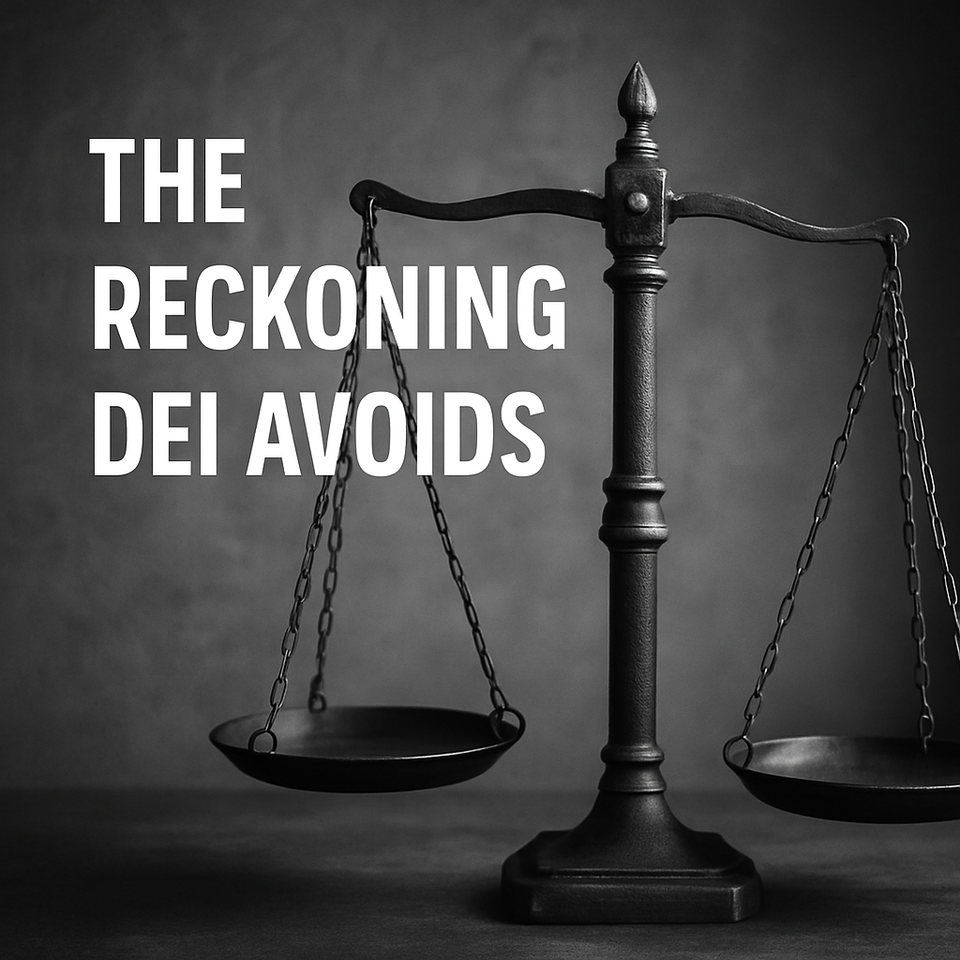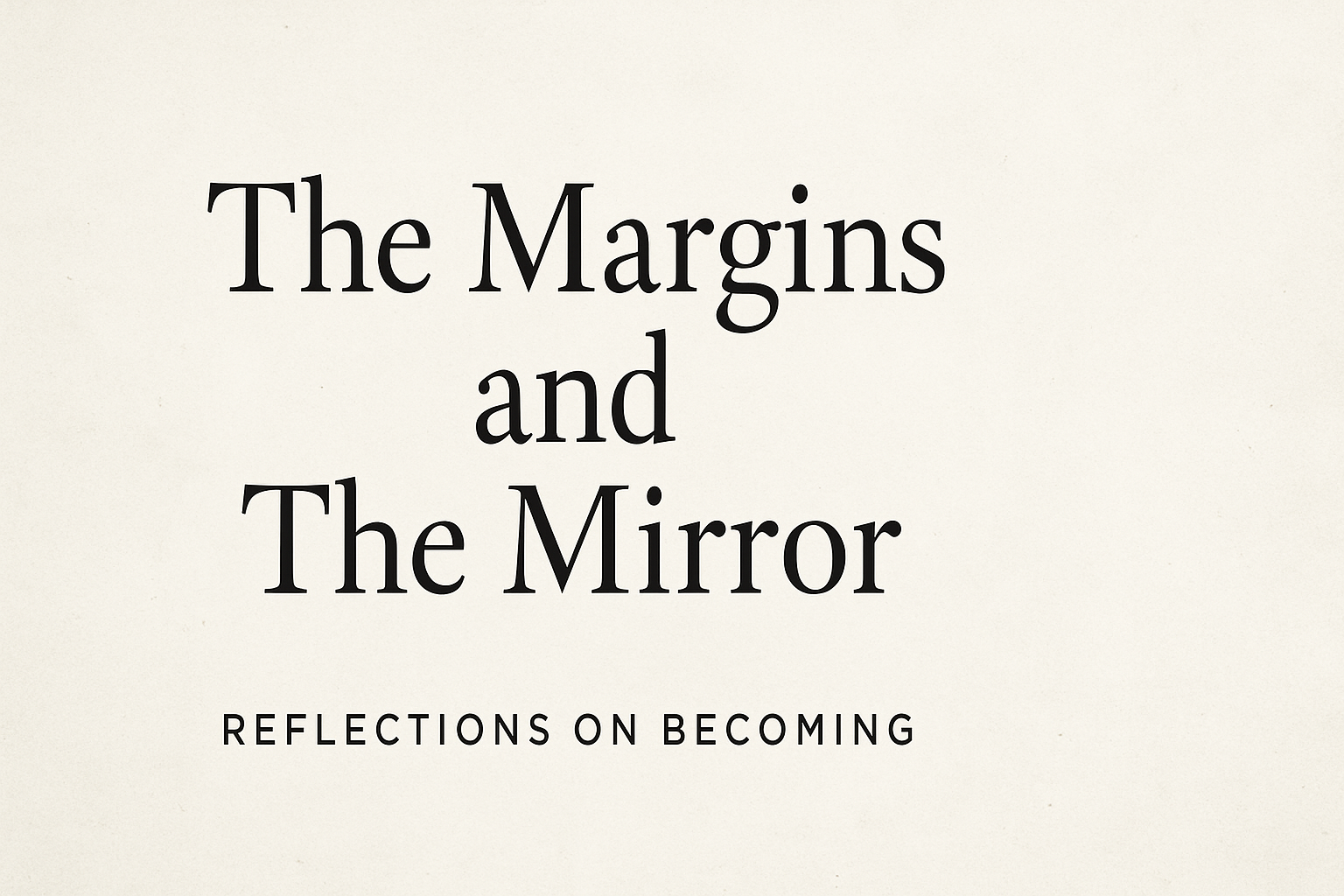The Reckoning DEI Avoids

Why diversity programs keep failing — and what it will take to finally confront the truth behind the illusion.
I recently came across an article written by a former executive colleague, the Chief Legal Officer of a prominent tech firm I once worked for. His piece, published in Newsweek, outlined the risks companies face if they ignore pay equity — legal exposure, lawsuits, reputational damage. But what struck me wasn’t what he said. It was what he didn’t.
His argument was clear: failing to address disparities in pay based on race and gender is costly. But costly in what way? Legal and reputational risk for companies — not the human toll endured by the women and people of color who’ve long been underpaid and overlooked.
This is the problem with DEI as we know it. It is framed as a business strategy, not a moral imperative. It is about brand safety, not integrity. The metrics might change, but the structure rarely does. And when I read pieces like that, I’m reminded of just how hollow the center of this work has become.
We don’t talk enough about the reason DEI programs are necessary in the first place. The reason we needed affirmative action. The reason pay equity is still an issue in 2025. That reason is foundational: we live in a country built on exclusion — codified into law, culture, and economics. And every generation has been forced to fight for a sliver more recognition, a little more access, a little more safety. DEI, in its modern form, was supposed to be a response to this history.
Instead, it became a workaround. A way to signal progress without confronting the roots of the problem: power hoarding, unchecked bias, and cultural supremacy masquerading as “professionalism.”
I’ve worked in the nonprofit world, in finance, in agriculture, in tech. And before all that, in the early part of my career, I helped develop MWBE (Minority and Women Business Enterprise) programs for the state of North Carolina. These initiatives were designed to bring fairness to public procurement and capital improvement projects. I watched as organizations like the Institute for Minority Economic Development sprang up to fight for Black and brown professional contractors to have a real chance at securing government contracts funded in part with their own tax dollars. That, too, was DEI. And like every version of it I’ve encountered, it wore the face of its context — yet the underlying issues remained the same: exclusion, power imbalance, and a reluctance to share opportunity.
I’ve seen the cycle repeat in every industry: a tragedy occurs. A public statement is released. A Chief Diversity Officer is hired. A few workshops are held. Some numbers shift. And too often, an old new idea springs forward as the fix — innovation and technology, now — where wealth is created for a few, but the root problem remains unsolved.
The cycle also recurs when the political winds shift — or when moments of national trauma strike, as we’re seeing again with the rise of a Trump administration categorically opposed to diversity and equity in any form. It never begins with a moral or ethical imperative that comes from within. It is always triggered from the outside — by tragedy, by backlash, by something so jarring it briefly shocks the global consciousness into attention, as George Floyd’s death did.
And still, the reckoning fades before it roots.
Then we forget. We move on. We let the system recalibrate itself just enough to look different, without becoming different.
Five years ago, George Floyd’s death sparked a global awakening. Companies pledged billions. Promises were made. It felt, briefly, like something might shift. But five years later, we’ve not only stalled — we’ve backpedaled. DEI programs are being dismantled. Affirmative action has been gutted. And those same companies are now writing op-eds about how to protect themselves from the legal fallout.
Meanwhile, those of us who have been in this fight for decades — boots on the ground, writing policy, mentoring the overlooked, raising our voices in rooms that didn’t want to hear us — are left wondering: is this work still needed? Did it ever matter? Will it ever be enough? In a climate where Trump’s campaign openly targets diversity programs across government, academia, and business, the backlash is no longer covert. It’s strategy.
Which begs the question: have we been asking the wrong ones all along?
This is the reckoning we keep deferring: the one with ourselves. Corporations don’t act on their own. They are made up of people. People who hold biases. People who fear discomfort. People who benefit from the very structures we claim to want to change.
Until we stop seeing equity as a risk and start seeing it as a responsibility — until we stop outsourcing moral courage to the HR department — we will continue this cycle.
I don’t want better diversity metrics. I want better humanity. I want leaders who understand that equity isn’t charity — it’s about integrity. That inclusion isn’t a marketing tool — it’s the baseline for a free, evolved, and fair society.
The DEI backlash isn’t a surprise. It’s the inevitable reaction to surface-level solutions that asked too little of systems designed to exclude. But maybe this moment — this unraveling — isn’t the end. Maybe it’s a chance to begin again.
Not with statements. But with truth. With courage. With a willingness to look at the roots instead of painting the leaves.
If we’re serious about equity, we have to stop asking what it costs. And start asking what it’s worth. And we have to decide if we’re ready to build something worthy of that question.
Author’s Note:
This reflection was inspired by a recent article on pay equity in the corporate sector. My intent is not to critique any individual but to broaden the lens and deepen the conversation around what DEI has been — and what it must become.
I also want to honor the resilience and dedication of the many changemakers I’ve worked with and learned from. Andrea Harris, who founded the Institute for Minority Economic Development in 1986, laid critical groundwork for economic inclusion in North Carolina. Lew Myers worked alongside her in advancing the organization’s mission. Though Andrea Harris is now deceased, her legacy lives on through the countless individuals she mentored and inspired to continue the work. Bridget Wall Lennon, who led the development of the MWBE program and later served as the head of North Carolina’s Office for Historically Underutilized Businesses (NC HUB), brought brilliance and integrity to a moment that became a model for others. I applaud Robyn Lake Hamilton, CEO of the Charlotte Urban League, and Kevin Price, current Chief Executive of the Institute for Minority Economic Development, who continue to push forward despite fierce headwinds.
This piece is dedicated to all who have labored — often invisibly — for a more just and fair society. Your courage, clarity, and consistency are the real legacy of this work. May we continue to walk in your path, with eyes wide open and hearts unwavering.
If this essay resonates with you and you’re seeking deeper, more nuanced context on the complex issues we face as a society,
subscribe to The Margins and The Mirror — a weekly space for reflection, perspective, and purpose.

